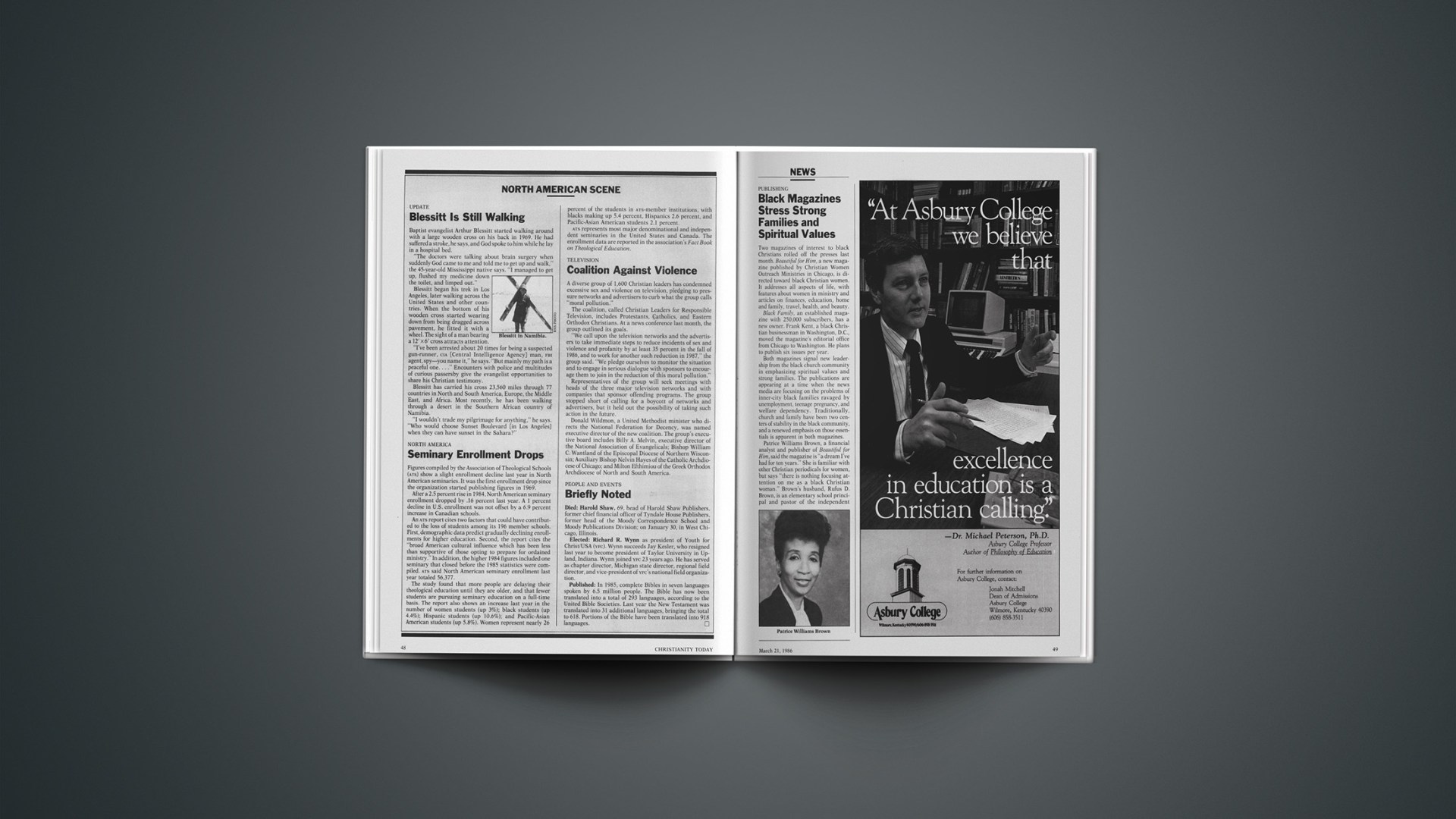Two magazines of interest to black Christians rolled off the presses last month. Beautiful for Him, a new magazine published by Christian Women Outreach Ministries in Chicago, is directed toward black Christian women. It addresses all aspects of life, with features about women in ministry and articles on finances, education, home and family, travel, health, and beauty.
Black Family, an established magazine with 250,000 subscribers, has a new owner. Frank Kent, a black Christian businessman in Washington, D.C., moved the magazine’s editorial office from Chicago to Washington. He plans to publish six issues per year.
Both magazines signal new leadership from the black church community in emphasizing spiritual values and strong families. The publications are appearing at a time when the news media are focusing on the problems of inner-city black families ravaged by unemployment, teenage pregnancy, and welfare dependency. Traditionally, church and family have been two centers of stability in the black community, and a renewed emphasis on those essentials is apparent in both magazines.
Patrice Williams Brown, a financial analyst and publisher of Beautiful for Him, said the magazine is “a dream I’ve had for ten years.” She is familiar with other Christian periodicals for women, but says “there is nothing focusing attention on me as a black Christian woman.” Brown’s husband, Rufus D. Brown, is an elementary school principal and pastor of the independent Christian Outreach Fellowship Church in Chicago.
The first issue of Beautiful for Him features civil rights activist Addie L. Wyatt on the cover. The magazine emphasizes the evangelical faith that motivated Wyatt’s efforts to press for equal rights for women and minorities in industry.
Kent’s first issue of Black Family magazine also features a woman on the cover: Esther Rolle, star of the television series “Good Times.” A feature on Jesse Jackson and his family is included, and special attention is paid to black history. Kent said his magazine will “focus on the majority of black Americans who do have stable families and are attending church.” Problem areas, including teenage pregnancy and drug abuse, will also be addressed.
In his first publisher’s message, Kent offers his perspective on black attitudes. “Black America has to stop seeing itself as a minority and see itself as part of the majority. We are Americans who are black, not blacks who are Americans. As long as we see ourselves as a minority, we will act like a minority.”
Although Kent is a member of Evangel Temple, an integrated Pentecostal church in Washington, D.C., his magazine is not aimed exclusively at Christian readers. Black Family will feature blacks who are Jewish and Muslim as well. However, Kent said 85 percent of the magazine’s subscribers—and the vast majority of American blacks—are Christians.
Kent said he is troubled by statistics that spell trouble for black families, but he is optimistic about possibilities for spiritual renewal among black youth. “My firm belief is that no group of people can be strong unless it is well-grounded in a religious faith. Certainly this has been true for black people. Sometimes we lose sight of the strong religious background black America has.”










